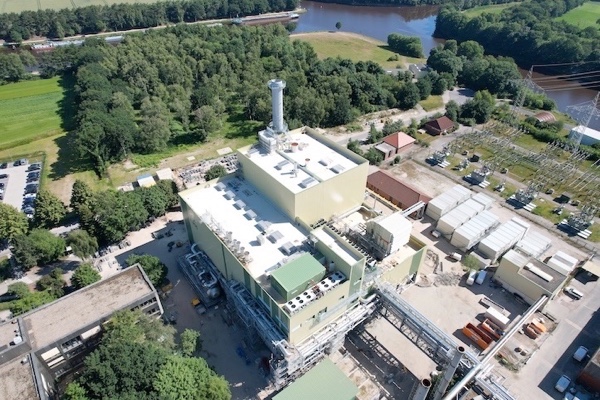Consumables
UPM opens state-of-the-art CHP plant at Europes largest paper mill

Wednesday 09. November 2022 - The CHP plant will reduce CO2 emissions by a total of 300,000 tonnes per year. As it will actively participate in the electricity market, it also stabilises the energy system and contributes to better integration of renewable energy.
UPM Nordland Paper officially opened a new cogeneration plant at its site in Dörpen, Emsland, Germany. UPM has invested EUR 100 million in the power plant, which will supply the paper mill with heat and electricity. The CHP plant will reduce CO2 emissions by a total of 300,000 tonnes per year. As it will actively participate in the electricity market, it also stabilises the energy system and contributes to better integration of renewable energy.
“I am very pleased to open the power plant today on time and on budget. With the CHP plant, we are demonstrating how important industrial plants are for a renewable electricity system: Our flexible plant will stabilise the power grid and thus support the integration of renewable energies,” said Winfried Schaur, Member of the Board UPM and President Die Papierindustrie e. V. at the beginning of the ceremony.
The 84 MW CHP plant will reduce the mill’s CO2 emissions by 300,000 tonnes per year with immediate effect. In addition, it is designed to run on hydrogen and is thus ready for the energy future in Germany. The investment significantly increases energy efficiency at the plant, leads to cost savings and thus contributes significantly to the competitiveness of the site.
Olaf Lies, Lower Saxony’s Minister for the Environment, Energy and Construction, sees the opening of the new power plant as an important development for his federal state in several respects: “Comprehensive investments by industry are crucial for the climate-friendly transformation of our economy. The new CHP power plant at UPM Nordland contributes to more climate protection and secures highly qualified industrial jobs in Lower Saxony in the long term.”
As the power plant is connected to the public electricity grid, the new plant also supports the energy transition in Germany. It can provide flexible generation capacities at short notice, for example when the sun is not shining or the wind is not blowing. In this way, the power plant strengthens the stability of the entire electricity system and supports the integration of renewable energies. In this way, UPM also contributes to the planned long-term phase-out of coal-fired power generation in Germany.
“Flexible industrial plants and power stations are a very central building block in the energy system of the future. They help us as a network operator to stabilise the increasingly green electricity network and thus support the energy turnaround,” concludes Torsten Maus, CEO of EWE Netz.
